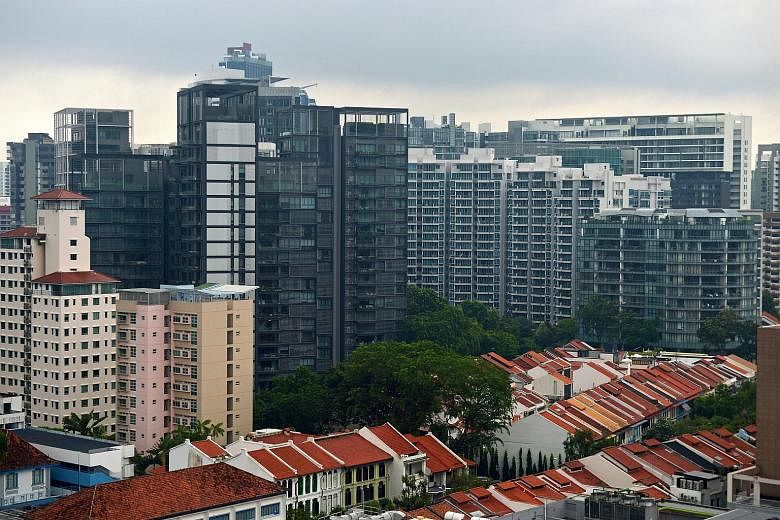SINGAPORE - The Monetary Authority of Singapore (MAS) has urged prospective property buyers to exercise caution when considering taking up loans to fund purchases amid rising interest rates and upcoming supply.
Household debt grew 3 per cent year-on-year in the third quarter, mainly on the back of a 3.4 per cent increase in housing loans in the same period, MAS said in its annual Financial Stability Review released on Friday (Nov 23). The rise in household debt is in line with income growth, it added.
However, the central bank noted that as of July, the value of new housing loans grew 30 per cent year-on-year, in tandem with a pick-up in residential property demand.
While recent cooling measures have slowed the pace of price increases and transactions, MAS said: "Households considering property purchases should carefully consider the impact of interest rate increases and the upcoming supply of new units in the medium term.
With the "headwinds of rising interest rates" and with rental yields expected to remain weak, it said that prospective buyers should remain prudent in their buying decisions and factor in likely increases in their debt servicing burdens.
"Over-leveraged households could also see a rapid deterioration in their balance sheet indicators if there is a sharp correction in property prices," it warned.
Overall, Singapore's household balance sheets remain healthy, said MAS, with liquid assets such as cash and deposits exceeding total household liabilities, providing households with strong financial buffers.
For the property sector, recent cooling measures should benefit long-term stability, MAS said.
In July, the Government raised the Additional Buyer's Stamp Duty (ABSD) rates and tightened loan-to-value limits, which meant that Singaporeans and permanent residents buying their second and successive properties had to pay more in stamp duties. The ABSD rate applicable to them was raised by 5 percentage points.
Home buyers were also not able to borrow as much as before. The proportion of a property's value that a buyer can borrow, known as the loan-to-value limit, was slashed by 5 percentage points.
"Sharp increases in prices, if left unchecked, could have run ahead of economic fundamentals and raised the risk of a destabilising correction later, especially with rising interest rates and the strong pipeline of housing supply," MAS said.
July's cooling measures helped "temper the pace of price increase and land sales activities", it added, pointing out that total transaction volumes have since fallen.


